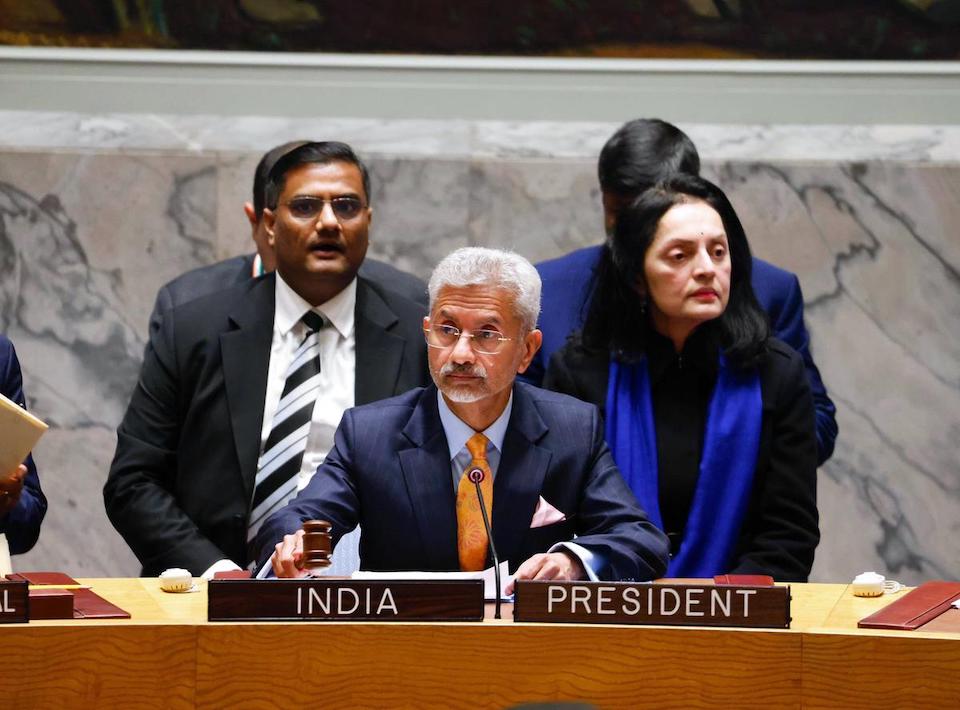India has strongly criticised Pakistan at the United Nations, accusing its neighbour of supporting cross-border terrorism and deliberately targeting civilians. The sharp exchange took place during an open debate at the UN Security Council on the protection of civilians in armed conflict, where India’s Permanent Representative, Ambassador Parvathaneni Harish, delivered a hard-hitting statement against Pakistan’s actions and rhetoric.
Ambassador Harish said that India has suffered decades of Pakistan-sponsored terrorist attacks, ranging from the 26/11 Mumbai attacks to the recent massacre of innocent tourists in Pahalgam, Jammu and Kashmir, in April 2025. He pointed out that the victims of these attacks have been mostly civilians, and accused Pakistan of trying to attack India’s prosperity, progress, and morale. “For such a nation to even participate in a discussion on protection of civilians is an affront to the international community,” Harish remarked.
Tensions between the two countries have risen after the Pahalgam attack, which claimed 26 lives and was found to have cross-border links. Following this, India launched “Operation Sindoor” targeting terror camps in Pakistan and Pakistan-occupied Kashmir. In retaliation, Pakistan reportedly attacked Indian border villages with unmanned aerial vehicles, shelling, and missile strikes, killing more than 20 civilians and injuring over 80. Indian officials said that these attacks intentionally targeted religious places like gurudwaras and temples, as well as medical facilities, in clear violation of international humanitarian norms.
Glorification of Terrorists
Ambassador Harish also criticised Pakistan for glorifying terrorists, stating that senior government, police, and military officials in Pakistan had paid respects at the funeral of known terrorists recently killed by Indian security forces. He said, “A nation that makes no distinction between terrorists and civilians has no credentials to speak about protecting civilians”.
India further called out Pakistan’s “grossly hypocritical” behaviour at the global stage, especially as Pakistan’s representative raised the Kashmir issue and made baseless allegations against India during the debate. Harish warned that arguments for the protection of civilians should not be misused to shield UN-designated terrorists, and urged the international community to unite against terrorism and those who sponsor or defend it.
Response to Indus Water Treaty Comments by Pakistan
The Indian envoy also addressed Pakistan’s comments on the Indus Waters Treaty, which India suspended following the Pahalgam attack. He said that India had always acted responsibly as an upper riparian state, but Pakistan’s continued support for terrorism had forced India to put the 65-year-old treaty into abeyance. Harish noted that over 20,000 Indians have been killed in terrorist attacks over the past four decades, and that Pakistan’s actions had repeatedly endangered the safety and prosperity of civilians in India.
India’s strong statement at the UN reflects the deepening mistrust and heightened tensions between the two neighbours. By highlighting its own suffering and Pakistan’s alleged double standards, India has sought to rally international opinion against terrorism and those who provide it safe haven. The international community, India argued, must show zero tolerance for terrorism and hold sponsors of terror to account.


